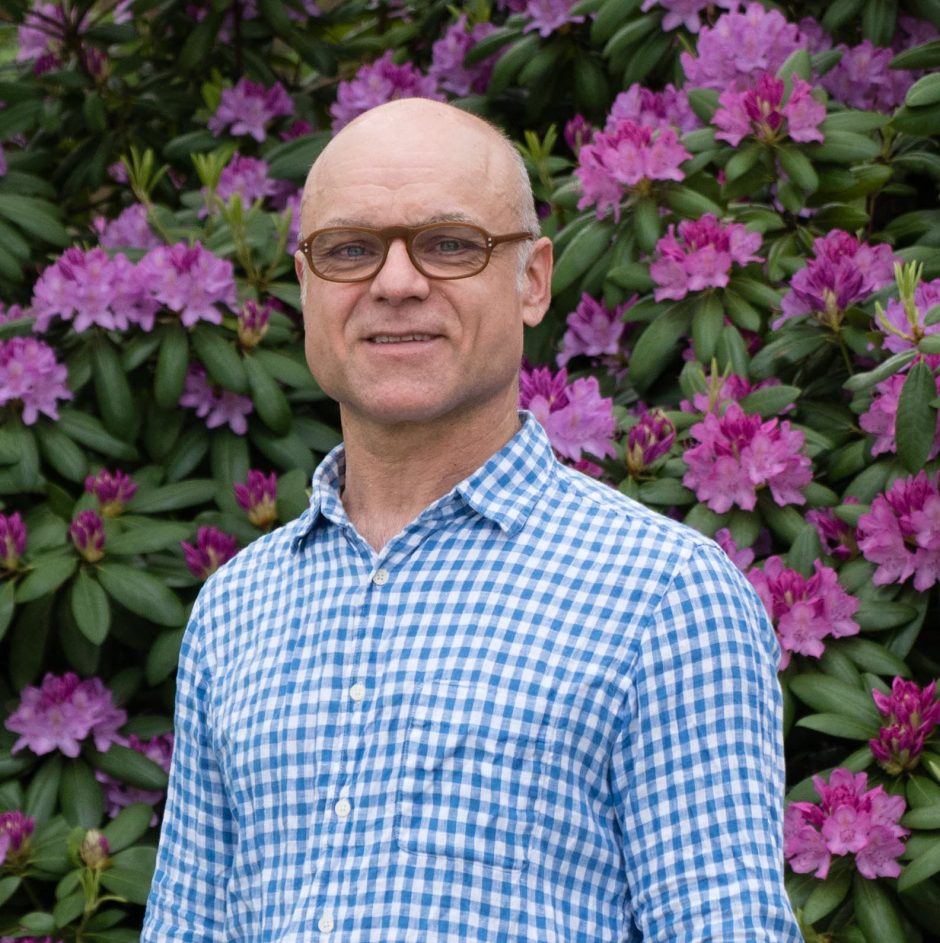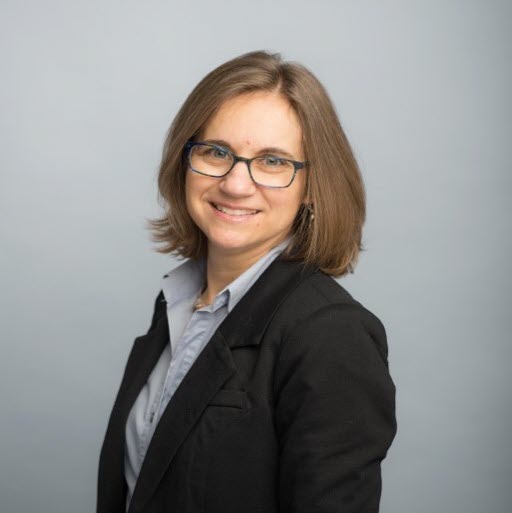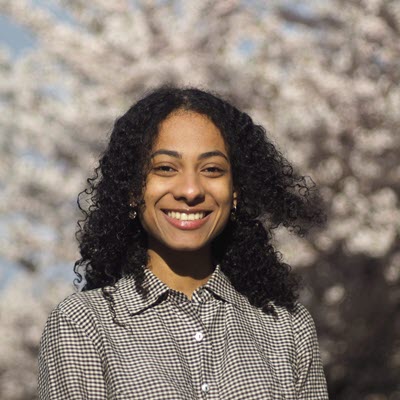Whether it is avidly writing a grant proposal to attract funding or presenting your latest research, mastery of the English language is crucial for success in science. But have you ever wondered, why English?
If the average modern scientist were to take a time machine back to the Middles Ages and the Renaissance, they might be stumped by the natural philosophy and natural history works of that time, which were almost all written in Latin. Because Latin did not belong to any one nation, it was accessible to scholars across Europe and to Arabic societies.
Make no mistake, these scholars were polyglot and chose the language based on the audience – Latin for international communications, and one’s native tongue for local relay. This system began to break down around the time of Galileo. He reported his discovery of Jupiter’s moons in Latin in 1610 but his later major contributions were published in Italian. The same holds true for Newton’s Principia, which was written in Latin in 1687, but Opticks was published in English in 1704. As a result, by the end of the 18th century there was a variety of languages used to communicate scientific findings.
This multiplicity of available languages proved inefficient in transmitting advances in scientific knowledge, which led to a compression of the scientific languages into English, French and German in the 19th century. German was the main contender in chemistry and perhaps I would be writing this article in German had it not been for the First World War. German intellects were shut out from new international institutions of Science set up in the early 1920s and German became outlawed in the U.S. around this time. The damage was done, leading to the collapse of German as a leading scientific language. By the 1980s, English dominated discourse in most international publications in the Natural Sciences, thus emerging as the scientific lingua franca we use today.

Dr. Alfredo Ferreira
A universal language for universal truth?
I corresponded with Dr. Alfredo Ferreira, a Lecturer in the Science stream of the UBC Vantage College Academic English Program, on the benefits and drawbacks of having English as the language of science. Interestingly, he said that, “Science aims for universally true claims about the Universe. With these aims, it helps considerably to use a common language. Science benefits from sharing not only the mode of communication but the values and perspectives that are encoded in the shared language.”
He suggested that, as with mathematics, language is used in communities of scientists to arrive at shared understandings, our best approximations to “truth.” Dr. Ferreira recounted Killam Award-winning Math lecturer, Dr. Fok Shuen Leung’s postulation that “mathematical claims, more than any other claims made at a university, hold (or don’t hold) regardless of whether people think so.” Dr. Ferreira agrees, recognizing the respective functions of mathematics, language, and other modes within the larger remit of science to identify, model, analyze, and interpret the universe using shared tools.
“Science is a collaborative activity,” he added, “and a common language facilitates the linking of established and new knowledge among scientists.” This is, of course, curiously true, as practice and history prove.
Dr. Ferreira believes the same qualities of language that benefit science also constrain it. “English reflects a relatively stable view of the world and organization of human social interaction,” he explained, and because English is intertwined with a history of dominance of some cultures over others, it implies that, “English-only science discourse is constrained in its world view.”
Although our view of “science” has Eurocentric roots, Indigenous Peoples and cultures have made their own discoveries that lack the same visibility and stature. Valuable oral histories and traditional knowledge are at risk of being lost in the scientific wilderness. This is problematic. Additionally, publishing scientific discoveries in non-English papers largely leads to work being ignored. One dire example is that of the deadly H5N1 strain of the avian flu which, though first published in a Chinese journal at the beginning of 2004, only received wider acknowledgement in August of that year.
“This is going to be your whole life”
If the Covid-19 pandemic has taught us anything, it’s that we ought to be paying close attention to scientific developments around the world, no matter the language, cultures, or nations. Apart from the constraint English imposes, it also presents a significant barrier to non-native English speakers who realize that they ought to publish in English journals to have their research globally recognized. Dr. Ferreira agrees that, “At a very practical level, much of university-level science is difficult to access for much of the world’s population.” So how do we break down this language accessibility barrier?
To gain a better understanding of the difficulties non-native English speakers face in their scientific studies, I encouraged two Life Sciences Institute trainees to share their experiences. The first interviewee was a native Spanish speaker who only learned English at school. She recalled her first days in college in her home country when one of her professors gave the class an English paper and said, “This is going to be your whole life. Better start soon.”
Despite this early language-training, upon moving to Vancouver, she found difficulty in the first couple of months adjusting to both spoken and written English. “In the beginning it’s so frustrating. You may know the answer to a question but by the time you translate it, someone else has answered,” she recounted. “People don’t understand what you’re saying — sometimes because of the accent and sometimes because of the grammar.” She shared that she felt incompetent due to the inability to express herself, since she was limited by the number of words she knew at the time. She could not reach the level of complexity needed in discussions, but she would have easily been able to do so in her first language.
This trainee motivated herself to practice oral presentations, putting in extra time and effort to become more comfortable with English. This inevitably led her to greater fluency, but there were times when she felt as though she was a burden when asking colleagues and peers for help with English writing and pronunciation. “It would be wrong to say I haven’t received help, but it isn’t something that’s easy to deal with,” she said.
Exposure to English as the language of science not enough
By comparison, another LSI trainee, whose first languages are Telugu and Hindi, was fortunately more proficient in English, having grown up in a household where it was regularly spoken and despite its lack of use at the public school which she attended. She completed her Bachelor’s degree in India, which was taught in English. “Oral presentations are okay for me, but I really struggle with the writing part,” she confessed. In India, she followed the writing conventions of British English and found difficulty adjusting to the North American use of the language. “I was taught to use passive English but here active English is encouraged,” she said. “I find myself having to reframe the way I write constantly after peers have viewed my writing.”
This highlights that, even with much exposure to English as “the language of science”, its technical aspects continue to be challenging. Furthermore, as a person who holds conversations in multiple languages, for example, Hindi and English, which are often combined to form Hinglish, she found that this would interfere with her flow of language when required to stick to one. Because she grew up speaking different languages, she can relate to multilingual undergraduates who struggle with English in the classes that she teaches as a teaching assistant. “These undergrads are intimidated by the native English speakers and so they participate less in class and that affects their participation grade as well as their comfort level in asking clarifying questions.”
She shared her concerns about docking these students’ marks based on grammar and vocabulary and suggested just giving feedback without penalty. “In many multilingual countries, if you don’t speak English, you’re often looked down upon and as instructors, I don’t know if we’re perpetuating that.”
The undergrad experience – “for me this course was totally self-study”
This interview led me to enquire about undergraduate experiences with English language in science. I spoke with an undergraduate transfer student from China who grew up with Chinese as her main language. She began to strengthen her English whilst at her previous university in order to pass the International English Language Test. Despite passing this test, she still experiences many difficulties.
She had a course with a flipped classroom structure, which emphasized group learning rather than the traditional instructor-to-student one-way flow of information. She found that she could not follow the fast-paced discussions within her group, which consisted of mainly native English speakers. “Because there were many tasks to be completed during the lecture time, I did not want to slow everyone down,” she recalled. “For me, this course was totally self-study.”
The student referenced another difficulty where she had to write up a scientific methodology for a course. When researching previously published methods, she found it not only challenging to understand such niche protocols, but also hard to find the right words to describe others’ work without losing the accuracy. It was saddening to hear her experiences since she had decided to study abroad for the enhanced academic resources. In a subsequent personal correspondence, she admitted that, “Sometimes, I feel it is not easy to continue my interests in science due to my poor English.”
Being able to pass the test doesn’t mean students can thrive
Based on my interviews, I realized that once students have passed UBC’s English Language Admission Standard, there seems to be a general assumption that they can thrive in UBC’s academic English context. Dr. Ferreira expanded on this, saying, “I believe standardized exams such as TOEFL and IELTS are not the best tools for identifying a student’s preparation for university study in English. While these kinds of exams do test for functions of language relevant to university science, they tend to miss the mark in relation to the kinds of wording and thinking that is valued in the practice of university science.”
He highlighted that the need to identify more valid measures of student preparation for university studies has been addressed to an important extent at UBC Vantage College. Students in this program take their content courses just like all UBC students do, but also receive enhanced, credit-bearing instruction in English as it is realized in the disciplines (Arts, Applied Science and Science) and their respective 1st year courses.

Dr. Sandra Zappa Hollman
I spoke with the Director of the Academic English Program at UBC Vantage College, Dr. Sandra Zappa-Hollman, to provide insight into the complexity of having English as the universal language of Science and what UBC can do to better support multilingual students. Dr. Zappa-Hollman reflected that, “UBC has grown over the years to include so many more students from around the world but we need to ask how we have prepared ourselves as an institution to be able to welcome and support those students throughout their degrees.”
She has launched a project on teaching multilingual undergraduate learners. The project will be based on a survey of people who teach courses for undergraduates that include multilingual learners. It will provide an institutional perspective on the beliefs and attitudes that instructors who work with multilingual students at UBC hold and how this predisposes them to work in certain ways. It will also bring to light how prepared, pedagogically-speaking, instructors perceive themselves to be for this. She revealed that there is a call in her field to embed a focus on language, literacy, and multimodality across the curriculum.
Aligning pedagogy with needs and abilities
“At Vantage we align the pedagogy to meet the abilities and needs of all students,” she explained, continuing that, “We let them adopt a lens on language where they are focusing on what they want to communicate, how they want to do it and to whom. This allows them to accomplish the communication successfully.” One challenge to incorporating this mindset into pedagogies and curriculums is that language and literacy are left to people in the periphery and the attitude that, “I am not a language teacher, why should I even care?” is of concern.
Apart from adjusting the way we teach, I spoke with Dr. Ferreira and Dr. Zappa-Hollman about resources for non-native English speakers. Dr. Zappa-Hollman recalled that there was a time when UBC offered a coaching program via the English Language Institute. This program offered free tutoring and free classes on pronunciation and writing. They were very empowering for students since the coaching approach built on what students already knew and their specific context. The students I interviewed confirmed that they would have used this valuable program if it were available.
“Unfortunately, the funding for this program ended and one of the problems it faced, was that it wasn’t well advertised,” Dr. Zappa-Hollman relayed. This might be the case for the English language resources that UBC does have to offer, such as The Centre for Writing and Scholarly Communication’s resources, the UBC Chapman Learning Commons’ writing tools, the WriteAway program co-developed by UBC’s I.K Barber Learning Centre, the Science Peer Academic Coaches, Speaking and Writing Workshops offered through Graduate and Post-doctoral Studies, and maybe more I might have missed.
Our conversation ended with Dr. Ferreira’s self-described “far-out ideas.” He suggested having an adjunct English language course attached to certain science courses. This might look like a simple one-credit English language course that could be applied to either undergraduate or graduate science courses, or both. Dr. Ferreira also proposed that international multilingual graduate students could provide a crucial link between research done in their home countries and that being done here at UBC. They could, for example, re-contextualize research that has been done in their first languages into English. This is all to say, as Dr. Zappa-Hollman put it, “we need continued investment from the university but first, an acknowledgment of the issues.”
Story by: Sasha McDowell, PhD. Cand. (Zoology) – I extend sincere thanks to and acknowledge the precious time and effort on the part of all participants to the interviews, which made this piece possible.
Sources utilized for this story that may be useful for further reading:
1) Gordin, M. D. (2021, May 3). How did science come to speak only English? – Michael D Gordin: Aeon Essays. Aeon.
2) Huttner-Koros, A. (2015, September 14). Why Science’s Universal Language Is a Problem for Research. The Atlantic.
3) Panko, B. (2017, January 2). English Is the Language of Science. That Isn’t Always a Good Thing. Smithsonian.com.
Featured interviewees:
Dr. Sandra Zappa Hollman
PhD and M.A. in Teaching English as a Second Language
Director, Academic English Program,
UBC Vantage College
https://vantagecollege.ubc.ca/dr-sandra-zappa-hollman
Dr. Zappa-Hollman has worked extensively with English language learners (ELLs), teacher’s education programs and administratively to develop academic writing courses. Dr. Zappa-Hollman’s latest research focuses on the use of functional grammar approaches to support the academic English literacy development of ELLs across diverse disciplinary fields.
Dr. Alfredo Ferriera
PhD in Language and Literacy Education and M.A. in Applied Linguistics
Lecturer, Science stream of AEP
UBC Vantage College
https://vantagecollege.ubc.ca/alfredo-ferreira
Dr. Ferriera’s research in educational linguistics focuses on the development of apprentice scholars’ capacities for varying levels of abstraction when they re-contextualize disciplinary knowledge. This approach encourages explicit instruction of the links between rhetorical aims, wording, and knowledge construction in and across academic disciplines.
